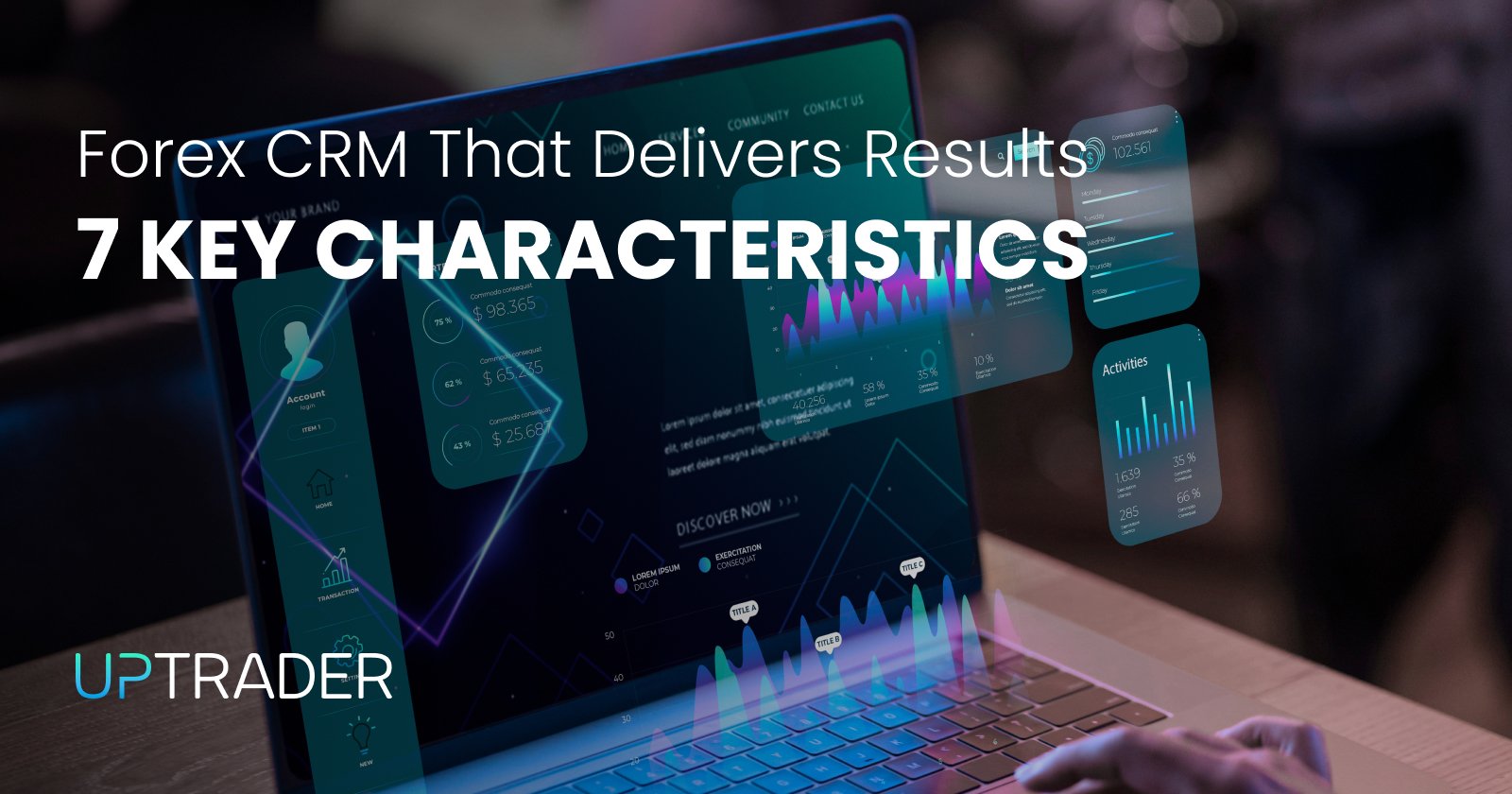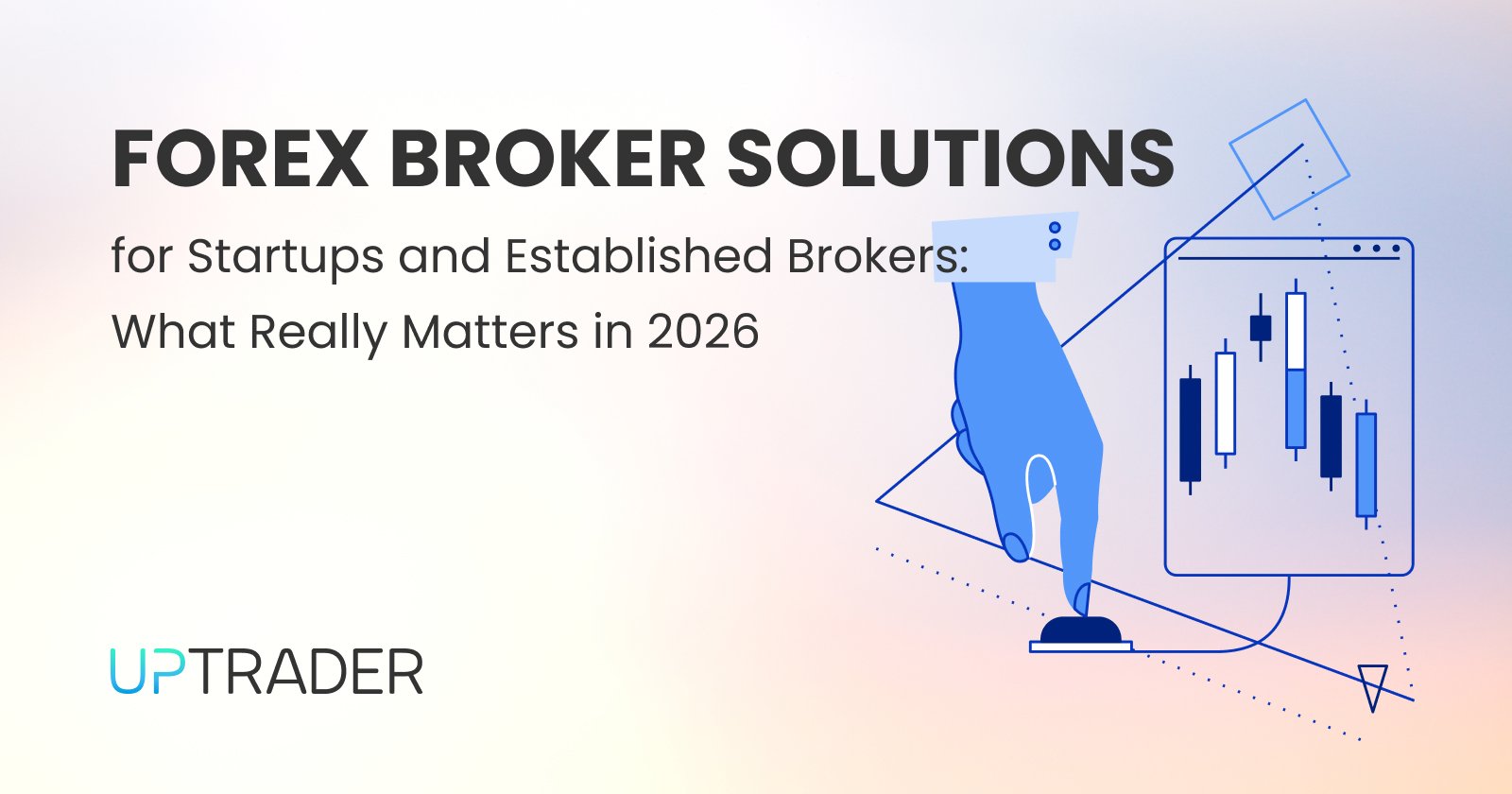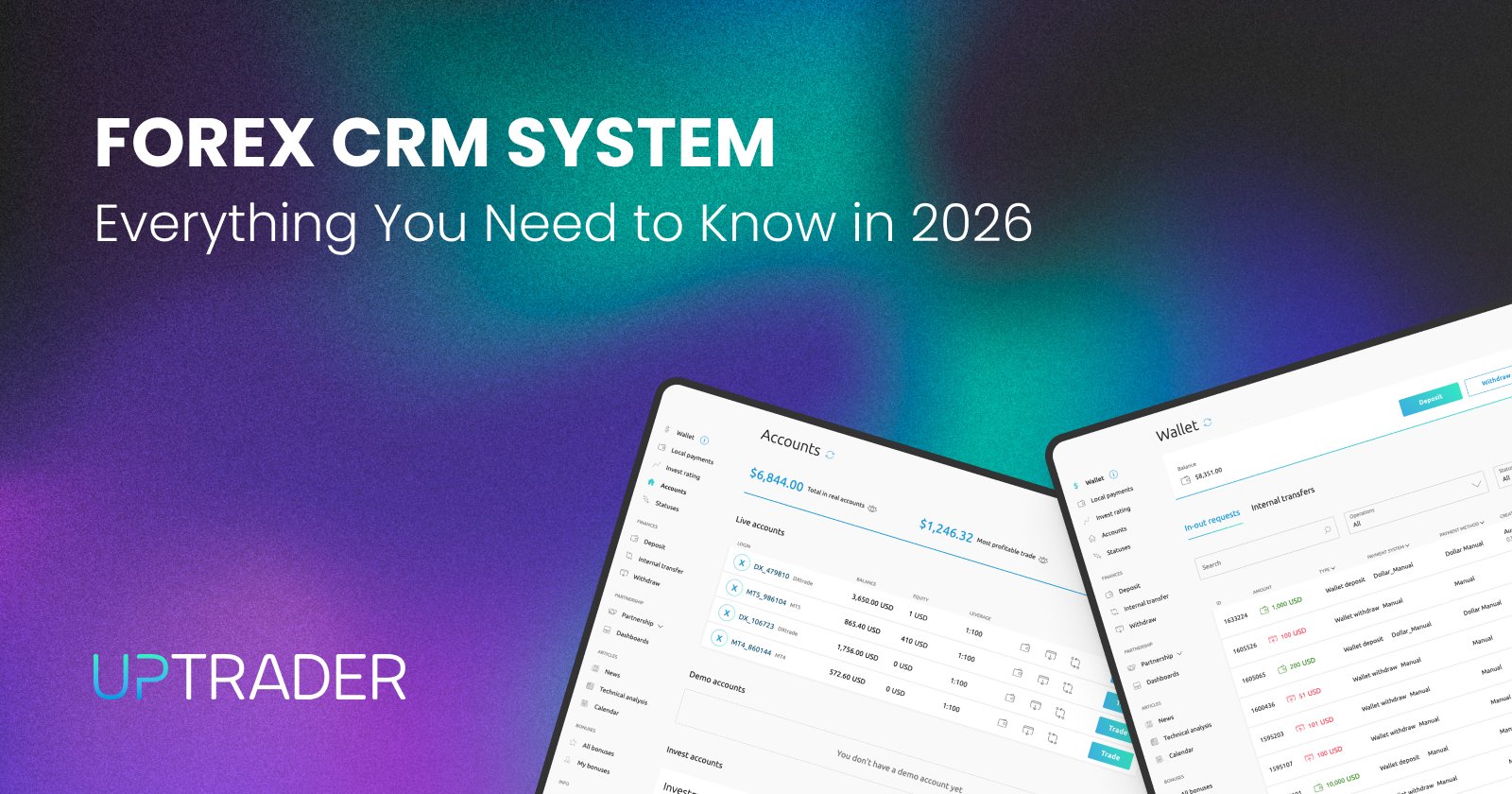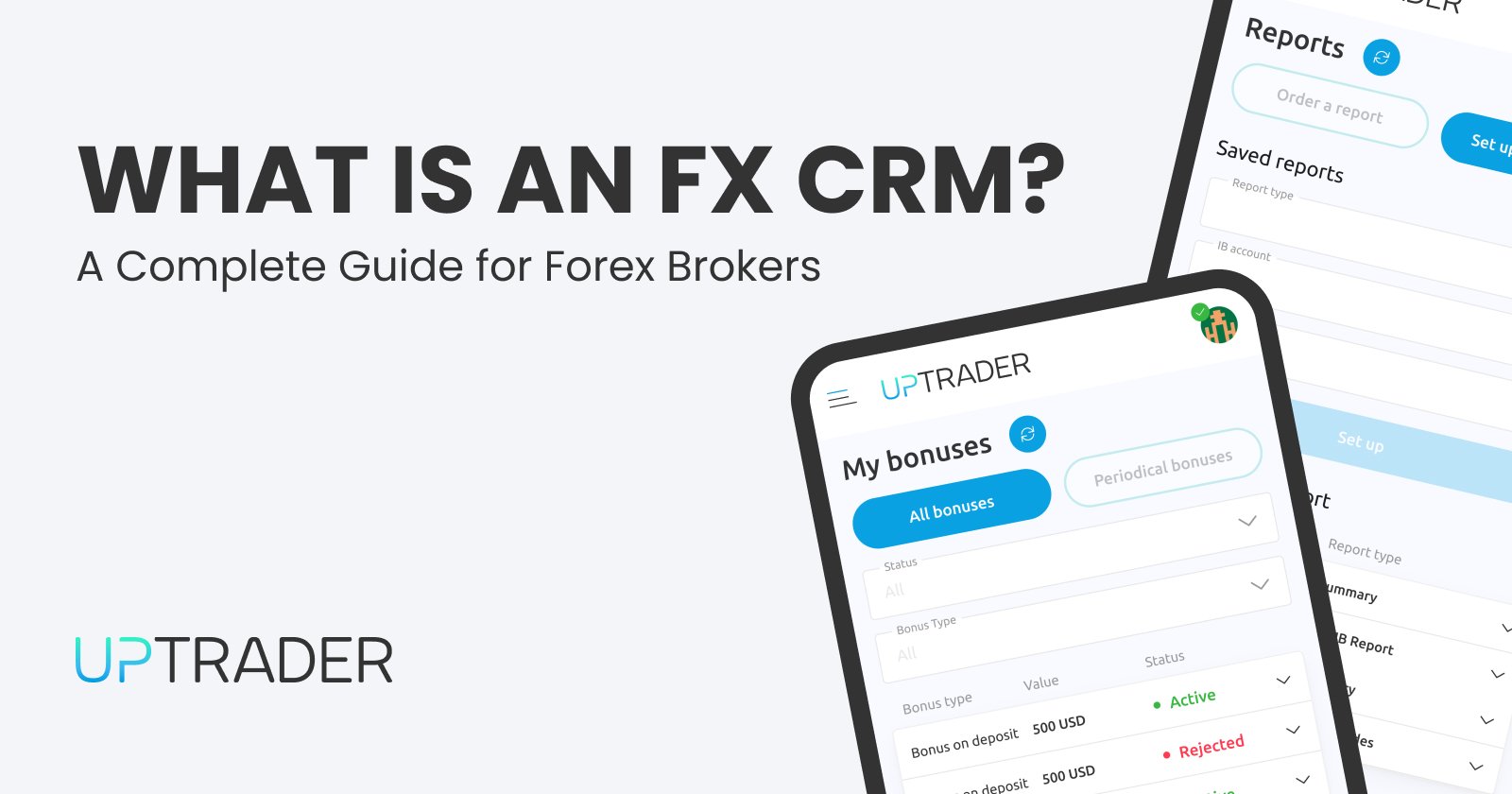Forex CRM That Delivers Results: 7 Key Characteristics

Share this publication:
The foreign exchange (Forex) market is very fast-paced and competitive, where brokers try to win over traders. Besides expertise in the trading market, success heavily relies on effective operations and customer happiness. This is where the magic happens with Forex CRM. A CRM for Forex brokers is much more than a way to manage clients; it is a vital component for managing compliance and growing the Firm.
But what is the best Forex CRM Software within the vast options available in the market? We can answer this from these seven characteristics. Let us analyze what differentiates effective Forex CRMs in 2025.
1. Integration with Trading Platforms
A Forex CRM should integrate seamlessly with Trading Platform 4/5, cTrader, and DXTrade. This allows the integration of information in real-time, trades, account balances, and clients' activity status can all go into the CRM.
For example, brokers using UpTrader or LXCRM enjoy automated onboarding processes whereby CRM-held client information is automatically replicated in trading accounts. This minimizes data entry and mistakes while speeding up client activation.
Without this connectivity, brokers risk fragmented operations, delayed responses, and missed opportunities to personalize services—a critical flaw in today’s hyper-competitive market.
2. Advanced Analytics and AI-Driven Insights
An advanced structure of strategies and estimations on how to solve problems becomes handy in 2025. The best Forex market CRM, for example, applies AI and machine learning techniques for predictive maintenance against an enormous backdrop of structured and unstructured data. Consider the following:
- Inactive traders can be flagged and monitored so that brokers can proactively use incentives to re engage these traders before any of them leave the platform.
- Broad marketing initiatives can be made by analyzing traders’ choices over currency pairs, risk thresholds, and other traits to identify overall trading behavior.
- Active real-time dashboards include client acquisition costs and other increasingly more sophisticated KPIs that for automatic data extractors allow for quick responses from brokers.
Most brokers traditionally relied on UpTrader CRM and FX Back Office CRM, which used to provide services with anticipation of the client’s market activity before their competitors.
3. Automation and Workflow Customization
Replacing slow processes with automated ones is no longer an option, but a necessity. These include, but are not limited to tasks such as a CRM for Forex brokers needing to manage repetitive tasks like:
- Lead nurturing: Automatically score leads based on engagement from website visits, and email opens to prioritize clients.
- Client communication: Trigger personalized emails for birthdays, account milestones, or market updates.
- Compliance checks: Auto-verify KYC documents and flag suspicious transactions to meet AML regulations.
Customizable workflows are equally vital. Brokers operate differently, and a one-size-fits-all approach won’t cut it. For example, Cloud Forex CRM enables companies to create custom pipelines for associating management or risk alerts, ensuring that the program conforms to its in-house business model.
4. Robust Compliance and Risk Management Tools
There is a growing concern around the globe at the moment regarding regulatory compliance in Forex. Forex CRM must have an automated compliance center to mitigate these risks:
- The KYC/AML is automated: File documentation and all client files can be secured, collected, validated, and stored and, in a very small effort, prepared with audit reports.
- Risk Monitoring: Brokerage along with its clients may be shielded through monitoring by levels of margins with exposure and ratios of leverage.
- Data Encryption: The bank-grade fortified security protocols protect sensitive payment information.
Brokers are more comfortable with LXCRM by Leverate because of hassle-free automated compliance processes, accurate risk notification and comprehensive dashboards.
5. Multi-level IB and Affiliate Management
Introducing brokers (IBs) and affiliates is pivotal for scaling a Forex business. The best Forex CRM facilitates partner management through:
- Hierarchical monitoring: Monitor sub-IB networks and calculate cascading commissions automatically
- Performance dashboards: Analyze affiliate conversion rates, client retention, and return on investment for optimizing partnerships.
- Payout structures are tailored to where you find commission tiers based on trading volumes or regions of performance.
For instance, B2Core’s CRM includes a multi-level IB module that supports global broker networks, making it easier to expand into new markets without operational chaos.
6. Scalability and Customization
CRM systems for forex brokers must develop together with the business. For a platform to accommodate more clients as the business grows, scalability and customization are vital. Some key components are:
- Cloud Forex CRM also enables brokers to use additional resources without needing to install any hardware. Such platforms are called Infrastructure as a Service.
- White label solutions - Personalizing the CRM increases clients’ trust in the brand.
- Modularity - Additional features, such as multilingual options or integration of payment processors, can be added where there is a need.
Although not designed for Forex brokers, Zoho CRM provides brokers with the flexibility needed at an affordable price.
7. Multilingual and Localized Support
Personalize client experiences: Offer interfaces, emails, and support in the client’s native language.
- Simplify compliance: Deliver region-specific regulatory updates in local dialects.
- Assist with regulation - Provide clients with important regulatory changes in the client's native language.
- Increase sales - Run various marketing campaigns that appeal to different ethnic groups.
Unlike competitors, Cloud Forex CRM uses AI-based translation tools to serve brokers in Europe, Asia, and Latin America.
Conclusion and Final Thoughts
In 2025, a Forex CRM isn’t just about managing contacts — it’s about driving growth, ensuring compliance, and delivering unmatched client experiences. The seven characteristics above — integration, AI analytics, automation, compliance, IB management, scalability, and multilingual support — define the best Forex CRM solutions today.
Brokers who invest in platforms like B2Core, LXCRM, or UpTrader CRM position themselves to thrive in a competitive landscape. Remember, the right CRM isn’t an expense; it’s a strategic asset that pays dividends in client loyalty, operational efficiency, and long-term profitability.
Ready to transform your brokerage? Explore these CRMs, request demos, and choose a partner that aligns with your vision. The future of Forex is data-driven, personalized, and relentlessly efficient — make sure your CRM is too.
If you want to give UpTrader CRM a try, you can talk to a consultant on our site today and make use of comprehensive features to help your brokerage succeed!







